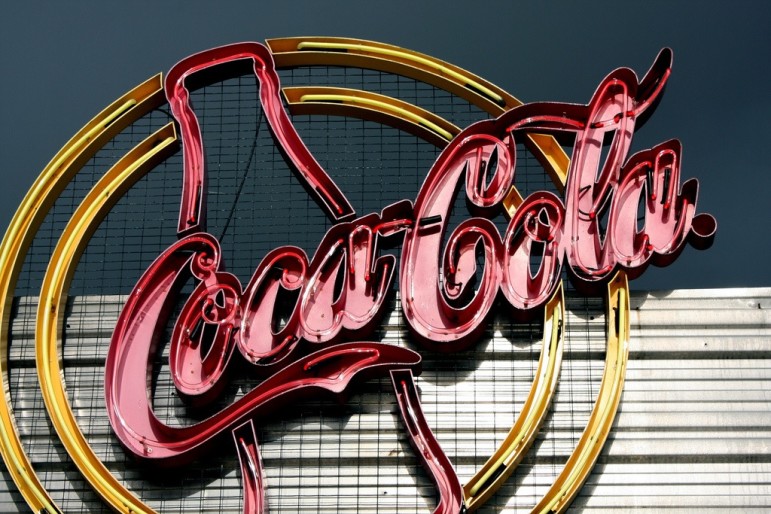
December 1, 2015; CBC
With U.S. soda consumption steadily decreasing, we are witnessing the rejection of an unhealthy junk food, despite the attempts of corporations to reverse the trend. In October, the New York Times ran a piece on “The Decline of Big Soda” and the industry’s unflinching attempts to maintain a foothold in the public’s food consciousness:
The beverage industry continues to fight these shifts—and especially to fight taxes on its products. But it is also aware that after decades of selling a handful of popular, iconic products, changing public attitudes are leading to a profound change in the nature of the business.
Under these pressures, the American Beverage Association has made a voluntary agreement to reduce obesity by selling fewer calories per person, but this hasn’t stopped stakeholders from griping about soda being singled out. As mentioned previously in this NPQ newswire, the vice president of the Global Energy Balance Network (GEBN), the nonprofit bankrolled by Coca-Cola to do “obesity research,” had opined that the “focus in the popular media and in the scientific press is, ‘Oh, they’re eating too much, eating too much, eating too much’—blaming fast food, blaming sugary drinks and so on.”
But the problem is indeed in the drink. Nutritionists often warn the public about the health risks of slugging down their calories, especially in the form of calorie-laden cocktails such as soda. In Canada, there has even been a big push to limit fruit juice consumption in kids, with the recommendations from the Canadian Paediatric Society being no more than half a cup of one-hundred-percent fruit juice per day.
To combat the evidence, soda companies (which make a range of sugary drinks) have had a couple of options: dispute the evidence wholesale or hop right onto the health bandwagon. Coca-Cola in particular has done both and turned to outside sources to extoll its virtues: “Coke has long maintained that the academics and other experts it works with espouse their own views. But the collaborations can be fraught and blur the lines between advertisements and genuine advice. In February, several health and fitness experts paid by the company wrote online posts with tips on healthy habits. Each suggested a mini-soda as a snack idea.”
Sign up for our free newsletters
Subscribe to NPQ's newsletters to have our top stories delivered directly to your inbox.
By signing up, you agree to our privacy policy and terms of use, and to receive messages from NPQ and our partners.
Although Coca-Cola has tried hard to keep its machinations under wraps, a recent spate of coverage has revealed the true nature of its dealings with GEBN, which received $1.5 million in funding from the soft drink giant. According to the Associated Press, “A proposal circulated via email at the company laid out a vision for a group that would ‘quickly establish itself as the place the media goes to for comment on any obesity issue.’ It said the group would use social media and run a political-style campaign to counter the ‘shrill rhetoric’ of ‘public health extremists’ who want to tax or limit foods they deem unhealthy.”
These methods are reminiscent of Big Tobacco-style tactics, as the health value of Coca-Cola is nil, no matter how much they wish it otherwise. Harvard, UCLA, and the American Heart Association alone have provided research about the health dangers of soda. To call these sources “extremists” is absurd.
The backlash against Coca-Cola’s donation to GEBN is most likely the source of the nonprofit’s recent closure, which its website cites as “due to resource limitations.” We can also surmise that the folding is partially due to bad press, such as this “Shonky Award” from CHOICE, an Australian consumer advocacy organization:
In a scientific revelation right up there with the discovery of penicillin, the GEBN website carefully explains that you gain weight when you take in more calories than you burn off, and vice-versa. The suggestion is that we shouldn’t stop gulping down cans of Coke, we should simply exercise more. So we had to take issue with the GEBN—in the form of a Shonky—which we think looks a lot like a fizzy font of self-serving pseudo-science.
While there is merit to corporate entities sharing resources to combat public health problems, the conflict of interest here is obvious. This Bloomberg Business article addresses how soft drink companies consistently downplay the link between sugary drinks and obesity. A clear example of this is in Coca-Cola’s Work It Out Calculator, which tells you how much exercise you need to burn off Coke products. On the fourth slider of the “Calories and You” tab, it says that excess quantities of any foods can make you fat, the subtext being that healthy ones will as well. On the third slider of the “Nutrition” tab, they even go so far as to cite the “nutritional value” of their drinks: “Sparkling drinks sweetened with sugar contain water that helps contribute to your recommended daily fluid intake, and carbohydrate calories that the body can use as fuel for daily activities.” Of course, when you put it that way, Coke sounds like the perfect health drink.
A company that, in the face of all evidence, thinks its products are good sources of the vital components to support human life is not a company to be trusted with anti-obesity or any kind of health research. Let’s hope that the shutdown of GEBN leads to even more public backlash against this kind of hypocrisy.—Amy Butcher










